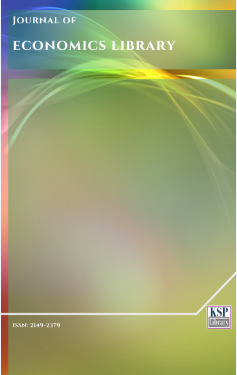From Keynes’ Clearing Union to the Euro-zone and the Renminbi
Abstract
Abstract. The 1944 Bretton Woods agreement provided an international imprimatur for the dollar standard. H. D. White, the lead US negotiator, saw to it that the ability of other countries to obtain commitments from the US (via the International Monetary Fund) for loans or approval for currency devaluations would be limited. J.M. Keynes, representing Britain, in contrast proposed an International Clearing Union that would issue its own currency (“bancor”), intended to reduce systemic dependence on the dollar or on gold. The ICU would be a bank for the world’s central banks, which would allow debtor nations to borrow freely. In contrast to White’s plan, ICU creditors would be expected to reduce their balances by expanding domestic credit or other means. Insights from Keynes’ plan help to understand later developments. An ICU premise was that international reserves should be pooled, and centralized. The Bretton Woods gold-dollar standard was jeopardized during the 1960s – the Triffin dilemma -- when European creditor countries demanded gold reserves from the US. A monetary truce, proposed by Mundell, would have included 1) agreement by Europe and the US on an inflation level, and for US monetary policy to target that level; and 2) Europeans adjust their gold-to-dollar ratios to maintain the US gold stock. Monetary cooperation could thereby have created de facto international reserves. Instead, the Bretton Woods exchange rate apparatus collapsed by 1973, leaving major currencies to float. Against expectation, international demand for reserves soared. Relentless demand for US securities has contributed to deindustrialization and financial fragility, ongoing consequences of the dollar standard. And exchange rate depreciation has done little to correct account imbalances. Clearing Union concepts help to understand the euro experiment – when it nearly failed, and how it recovered. An international currency can succeed only if 1) surplus and creditor countries are both required to adjust; and 2) member countries agree on inflation objectives. Demands on China to revalue have been misguided. From the perspective of 2022, correction of account imbalances will not happen without the approval of the world’s now largest creditor – China – which is likely to resist any constrain on its actions. This is and will be a drag on the world economy.
Keywords. Bretton Woods; International Clearing Union; Bancor; John Maynard Keynes; Harry Dexter White; Robert Triffin; Robert Mundell; Triffin Dilemma; Monetary truce; 1966; Euro-zone; Renminbi revaluation; Partial equilibrium models; Multi-lateral clearing; Flexible exchange rates.
JEL. F02; F31; F33; F36; F38; F41; F45.Keywords
References
Auteur, D. (2017). A note on the effect of rising trade exposure on the 2016 presidential election, MIT Working Paper, March 2. [Retrieved from].
British Information Services (1943). Proposal by British Experts for an International Clearing Union, April 8.
Di, D., Coats, W., & Yuxuan, Z. (2017). Why the world needs a reserve asset with a hard anchor, Frontiers of Economics in China 2017, 12(4), 10.3868/s060-006-017-0023-7
Congressional Research Service (2022). Foreign Holdings of Federal Debt, May 25. https://sgp.fas.org/crs/misc/RS22331.pdf
Johnson, C. (1997). Gold, France, and the Great Depression, 1919-1932. New Haven: Yale.
Johnson, C. (2022). Uncommon Arguments on Common Topics: Essays on Political Economy and Diplomacy. Istanbul: KSP Books. [Retrieved from].
Keynes, J.M. (1920). Economic Consequences of the Peace. New York: Harper and Row.
Keynes, J.M. (1930). A Treatise on Money. New York: Harcourt, Brace & World.
Keynes, J.M. (1936). General Theory of Employment, Interest, and Money. New York: Harcourt, Brace & World.
Keynes, J.M. (1989). Collected Writings of John Maynard Keynes. Edited by D. Moggridge. London: Macmillan
Klein, M., & Pettis, M. (2020). Trade Wars are Class Wars: How Rising Inequality Distorts the Global Economy and Threatens International Peace. New Haven: Yale
Mundell, R. (1968). International Economics. New York: Macmillan
Mundell, R. (1968B). Man and Economics. New York: McGraw-Hill
Mundell, R. (1969). The International Monetary Fund, Journal of World Trade Law, pp. 455-497.
Mundell, R. (1973). A plan for a European currency, Conference in Madrid, 1970. Reprinted 1973, H.G. Johnson & A.K. Swoboda, The Economics of Common Currencies, pp.143-172. London: Allen and Unwin.
Mundell, R. (1992). Trade balance patterns as global general equilibrium: The seventeenth approach to the balance of payments, in M. Baldassarri, et al., International Economic Interdependence, Patterns of Trade Balance and Economic Policy Coordination. New York: St. Martin’s Press
Nosrati, E., Ash, M., Marmot, M., McKee, M., & King, L. (2018). The association between income and life expectancy revisited: deindustrialization, incarceration and the widening health gap, International Journal of Epidemiology, 47(3), 720-730. doi. 10.1093/ije/dyx243
Ohlin, B., & Keynes, J.M. (1929). The reparation problem: A discussion, Economic Journal, 39(154), 172-182. doi. 10.2307/2224537
Sandbu, M. (2015). Europe’s Orphan: The Future of the Euro and the Politics of Debt. Princeton, NJ: Princeton.
Sumner, S. (2015). The Midas Paradox: Financial Markets, Government Policy Shocks, and the Great Depression. Oakland, CA: Independent Institute
Triffin, R. (1957). Europe and the Money Muddle: From Bilateralism to Near-Convertibility, 1947-1956. New Haven: Yale
Triffin, R. (1960). Statement to the joint economic committee of the 87th congress, 1959. Reprinted 1960, Gold and the Dollar Crisis. New Haven: Yale.
US Department of the Treasury (2022), Preliminary Report on Foreign Holdings of US Securities, February 28. [Retrieved from].DOI: http://dx.doi.org/10.1453/jel.v9i4.2393
Refbacks
- There are currently no refbacks.
.......................................................................................................................................................................................................................................................................................................................................
Journal of Economics Library - J. Econ. Lib. - JEL - www.kspjournals.org
ISSN: 2149-2379
Editor: jel@ksplibrary.org Secretarial: secretarial@ksplibrary.org Istanbul - Turkey.
Copyright © KSP Library

